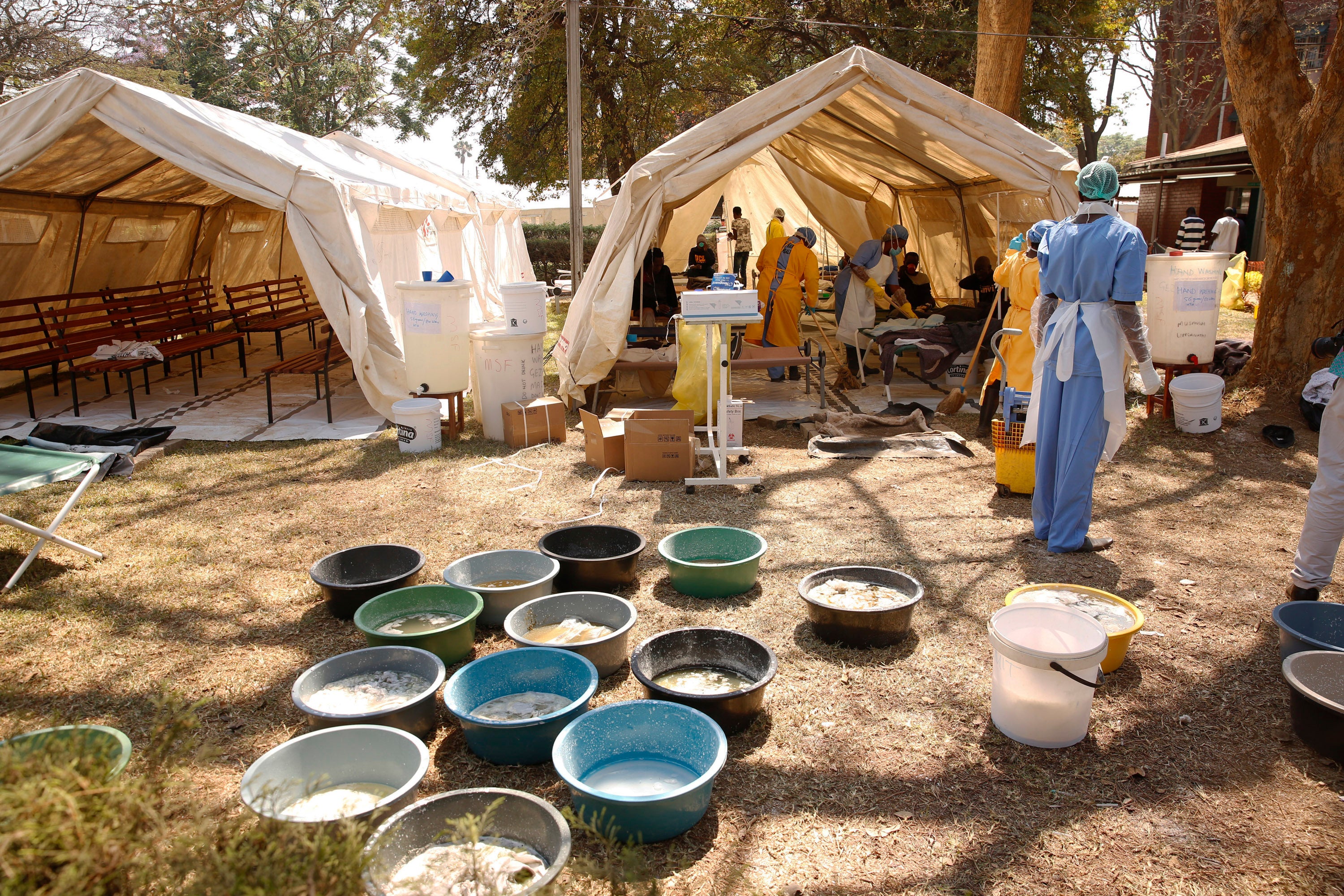Zimbabwe announces 100 suspected cholera deaths and imposes restrictions on gatherings
Zimbabwe has recorded 100 suspected deaths from cholera and more than 5,000 possible cases since late last month

Your support helps us to tell the story
From reproductive rights to climate change to Big Tech, The Independent is on the ground when the story is developing. Whether it's investigating the financials of Elon Musk's pro-Trump PAC or producing our latest documentary, 'The A Word', which shines a light on the American women fighting for reproductive rights, we know how important it is to parse out the facts from the messaging.
At such a critical moment in US history, we need reporters on the ground. Your donation allows us to keep sending journalists to speak to both sides of the story.
The Independent is trusted by Americans across the entire political spectrum. And unlike many other quality news outlets, we choose not to lock Americans out of our reporting and analysis with paywalls. We believe quality journalism should be available to everyone, paid for by those who can afford it.
Your support makes all the difference.Zimbabwe has recorded 100 suspected deaths from cholera and more than 5,000 possible cases since late last month, prompting the government to impose restrictions to stop the spread of the disease, including limiting numbers at funerals and stopping some social gatherings in affected areas.
The health ministry announced the death toll late Wednesday and said 30 of the deaths had been confirmed as from cholera through laboratory tests. It said 905 confirmed cases had been recorded, as well as another 4,609 suspected cases.
Cholera is a water-borne disease that can spread rapidly in areas with poor sanitation and is caused by the ingestion of contaminated water or food. Zimbabwe struggles with access to clean water.
Large gatherings at funerals, which are common in the southern African country as people flock to mourn the dead, have been stopped in some of the most affected areas in parts of the Manicaland and Masvingo provinces. No more than 50 people are allowed to attend funerals, while people should avoid shaking hands and are not allowed to serve food at the funerals, the government said.
The government has also said people should stop attending open markets, some social gatherings and outdoor church camps, where there is usually no sanitary infrastructure.
Zimbabwe has often imposed restrictions during its repeated outbreaks of cholera.
Buhera, an impoverished southeastern district, is the epicenter of the current outbreak, the health ministry said, adding that cases have now spread to 41 districts in various parts of the country, including the capital, Harare.
In southern Africa, Zimbabwe, Malawi, South Africa and Mozambique have all had recent cholera outbreaks. More than 1,000 people died in Malawi's worst outbreak in decades late last year and early this year.
The World Health Organization has warned of the risk of cholera due to problems with access to clean water, but also sometimes because of climatic phenomena like tropical storms, which can lead to bigger, deadlier outbreaks, as was the case with Malawi.
In Zimbabwe, poor or nonexistent sanitation infrastructure and a scarcity of clean water has resulted in regular outbreaks. People in some areas go for months without tap water, forcing them to rely on unsafe shallow wells, boreholes or rivers. Raw sewage flowing from burst pipes and piles of uncollected trash increase the risk.
More than 4,000 people died in Zimbabwe's worst cholera outbreak in 2008.
___
AP Africa news: https://apnews.com/hub/africa